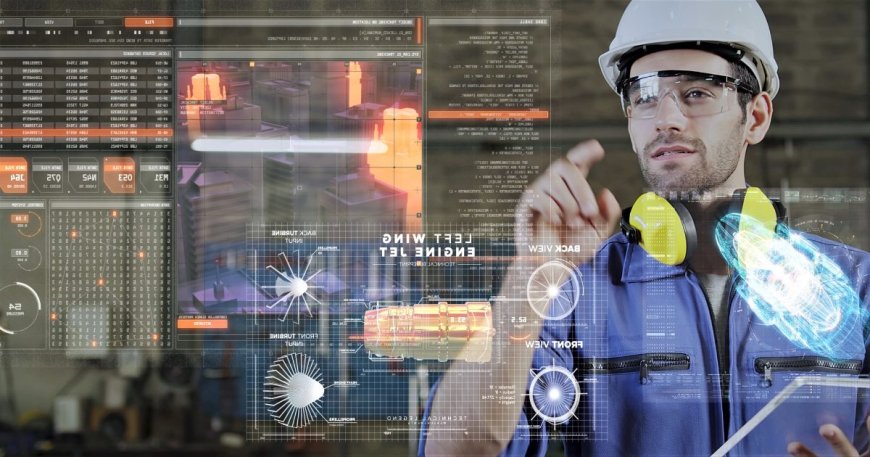Realistic Virtual Learning Environments and Digital Twin Technology for LMS and LXP
Explore the future of LMS and LXP with realistic virtual learning environments and digital twin technology. Discover their impact on education and corporate training in Turkey.

Welcome, EdTech Türkiye audience!
As education technology evolves, realistic virtual learning environments and digital twin technology are reshaping the future of learning platforms. These innovations are enhancing LMS (Learning Management Systems) and LXP (Learning Experience Platforms) by improving engagement, training efficiency, and learner experiences.
This article explores the impact, adoption, and future applications of these technologies in Turkey’s education ecosystem and how they can drive corporate learning, student engagement, and workforce development.
Why Are Realistic Virtual Learning Environments and Digital Twins the Future of Learning?
Studies show that learning by doing is far more effective than traditional training methods. The demand for remote and immersive learning solutions has surged, especially after COVID-19, prompting institutions and businesses to invest in realistic virtual training solutions.
The Global Shift Toward Digital Twin Technology
- According to ILO (International Labour Organization), 35% of technical and vocational schools planned to invest in VR-based training in 2021.
- In Turkey, the Ministry of National Education (MEB) is supporting digital learning innovations through projects like the Digital Education Innovation Center.
However, integrating digital twins and virtual learning into LMS and LXP was previously limited due to high development costs and compatibility challenges. Advances in data capture, AI, and simulation now allow for more realistic and cost-effective implementations.
Why Should Learning Platforms in Turkey Adopt Digital Twin Technology?
1️⃣ Accelerating Workforce Skill Development
Digital twins enhance both technical and soft skills.
✔️ Example: A manufacturing company in Istanbul used a digital twin of its factory processes, significantly improving problem-solving skills and operational efficiency.
2️⃣ Boosting Employee Satisfaction and Engagement
Beyond productivity, realistic training environments also improve job satisfaction and retention.
✔️ Example: A Turkish aviation firm implemented a digital twin-based maintenance training program for aircraft technicians.
✅ Time Savings: Trainees could practice complex procedures without needing physical aircraft.
✅ Better Communication: Interactive digital twins improved knowledge transfer among technicians.
✅ Workplace Safety: Simulated risk scenarios reduced real-world accident risks.
3️⃣ Safe Practice Environments for High-Risk Professions
In industries like healthcare, construction, and manufacturing, employees need hands-on experience in a risk-free setting.
✔️ Example: Medical students can use digital twins of the human body for surgical simulations, improving their accuracy and confidence.
How Can Turkey Leverage These Technologies?
The adoption of digital twins and realistic virtual training in education and workforce development is gaining momentum in Turkey, driven by:
- National Digital Transformation Strategy
- Public-private partnerships
- Support from the Ministry of Industry and Technology
Here’s how institutions can integrate these innovations:
1️⃣ Upgrading LMS & LXP Platforms
✔️ Universities and corporations should update their learning platforms to support virtual learning and digital twin simulations.
✔️ Example: Engineering faculties in Turkey can integrate industrial process simulations into their remote learning modules.
2️⃣ Government and Private Sector Collaboration
✔️ Funding initiatives for developing Turkish-specific digital twin education projects.
✔️ TÜBİTAK and technology startups can drive innovation through special grant programs.
3️⃣ Training Educators and Learning Designers
✔️ Capacity-building programs to train educators in using virtual environments and digital twin tools.
✔️ Example: The Higher Education Council (YÖK) could introduce teacher training programs for digital twin integration.
4️⃣ Industry-Specific Training Simulations
✔️ Strategic industries (defense, energy, healthcare) can develop sector-focused digital twin training simulations.
✔️ Example: Turkey’s defense sector could use digital twins for cybersecurity and AI-driven military training.
5️⃣ Industry 4.0 and Smart Manufacturing Training
✔️ Custom digital twin training modules for Turkey’s manufacturing sector.
✔️ Example: Automotive manufacturers can use virtual factory environments for workforce training.
Conclusion: Why Digital Twins Matter for Turkey’s Learning Ecosystem
LMS and LXP platforms are evolving beyond content delivery to experiential learning models. Turkey is well-positioned to lead this transformation by investing in realistic virtual training solutions.
- Boosting student engagement and retention
- Enhancing corporate training efficiency
- Strengthening Turkey’s global competitiveness in digital education
Join the Conversation!
How is your institution implementing realistic virtual training or digital twins?
What challenges or successes have you experienced?
- Share your insights with EdTech Türkiye and be part of Turkey’s education technology revolution!
Copyright Notice
All content on this website is protected under copyright laws. Unauthorized copying, distribution, or reproduction of any part of this content is strictly prohibited. All rights reserved, and any use requires prior written permission.